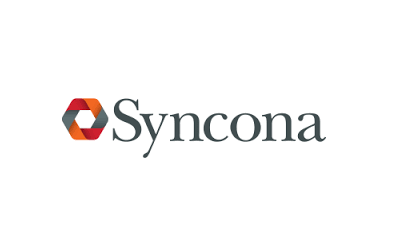Syncona accelerates investment in gene therapy portfolio
LSE-listed biotech VC fund Syncona (SYNC) has made a significant investment in three of its portfolio companies involved in developing gene therapies, with staged commitments of £85m ($112m) to Freeline Therapeutics, $35m to SwanBio and $12m to Orbit Biomedical.
Freeline, which was spun out from University College London (UCL) in 2015, is focused on hemophilia B and Fabry disease; SwanBio is developing gene therapies for neurological disorders based on research from Harvard/MGH; and, Orbit Biomedical, which exploiting a gene delivery technology for the sub-retinal space based on technology acquired from Johnson & Johnson.
Syncona holds 80% of Freeline, 72% of SwanBio and 80% of Orbit Biomedical, as well as holdings in two other gene therapy companies, Nightstar Therapeutics, which is listed on Nasdaq, and Gyroscope. The company believes its portfolio now covers the major tissue compartments where gene therapy has achieved proof of concept, namely the eye, liver and CNS and claims it is one of the most comprehensive coordinated AAV gene therapy platforms globally. Nightstar recently received the new Regenerative Medicine Advanced Therapy (RMAT) designation from the US FDA for its gene therapy (NSR-REP1) c for choroideremia, a rare degenerative, genetic retinal disorder that leads to blindness. NSR-REP1 is currently in a Phase III study.
Later this week, Syncona should get a boost to NAV from the proposed flotation of Autolus, a UK-based CAR-T cell company on Nasdaq. Syncona has a holdings equivalent to 8.1% of its strategic investments in Autolus, which is expected to list at a premium of between 53-73% on the valuation established at its last funding round.
Syncona published its annual results last week showing net assets at 31 April year end of £1,055.8m (158.9p/share), representing a total return of 18.7%. The company achieved a 57.2% return from its life science portfolio, driven by financing events in Nightstar and Autolus in the period and a revaluation of Blue Earth. The company generated a 7.5% return on its fund investments of £465.1m. During the year, the firm deployed £125.2m in new and follow on life science investments. A dividend of 2.3p was declared (2017: 2.3p) and the fund made a charitable donation of £4.75m (this was part of its original remit as Battle Against Cancer Investment Trust).
Syncona’s investments are shown, as of 31 March, are shown in the table below.
| 2018 value (£m) | % NAV | ownership FD % | |
| Blue Earth | 186.8 | 17.7 | 89 |
| Nightstar | 124.5 | 11.8 | 42 |
| Autolus | 85.1 | 8.1 | 38 |
| Freeline | 36 | 3.4 | 74 |
| Gyroscope | 11 | 1 | 85 |
| Orbit Biomedical | 8.6 | 0.8 | 80 |
| Achilles | 6.6 | 0.6 | 69 |
| Swan Bio | 4.9 | 0.5 | 72 |
| CRT Pioneer Fund | 30.8 | 2.9 | N/A |
| CEGX | 9.8 | 0.9 | 9 |
| Endocyte | 9 | 0.9 | 2 |
| collaborations | 1.4 | 0.1 | |
| Investments | 514.5 | 48.7 | |
| Fund holdings | 465.1 | 44.1 | |
| Cash | 85.2 | 8.1 | |
| liabilities | -9 | -0.9 | |
| Total | 1055.8 | 100 |
